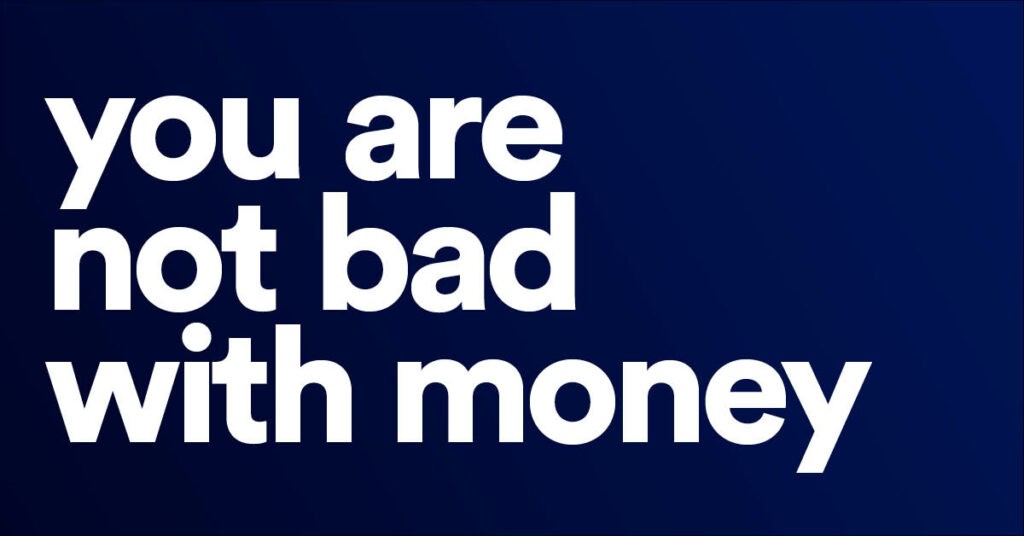Being “bad with money” is a label that many people carry quietly, often with a mix of shame and resignation. It’s a phrase tossed around casually, but its impact can be deeply personal. The truth is, most people who consider themselves bad with money aren’t lacking intelligence or ambition—they’re navigating a system that’s complex, emotionally charged, and rarely taught in a meaningful way. In business, financial missteps are treated as data points for improvement. Personally, they’re often internalized as character flaws. That disconnect is part of the problem.
Money management is not an innate skill. It’s learned, shaped by experience, environment, and access to information. If someone grew up in a household where finances were a source of stress or secrecy, they may not have had the opportunity to develop healthy habits or confidence around money. Similarly, if their early adult years were marked by low wages, student debt, or financial instability, they may have developed coping mechanisms that prioritize survival over strategy. These patterns aren’t signs of failure—they’re reflections of context. In business, leaders analyze root causes before making changes. Individuals deserve the same grace and curiosity when evaluating their financial behavior.
The emotional dimension of money is often overlooked. Financial decisions are rarely just about numbers—they’re about identity, security, and self-worth. Overspending might stem from a desire to feel successful or to escape stress. Avoiding bills might be a response to anxiety or fear of judgment. These behaviors aren’t irrational—they’re human. In business, emotional intelligence is recognized as a key leadership trait. In personal finance, it’s just as critical. Understanding the emotional drivers behind financial habits is the first step toward meaningful change.
Another truth is that being “bad with money” is often a temporary phase, not a permanent condition. Financial literacy can be built. Habits can be changed. Systems can be redesigned. The challenge is that many people don’t know where to start, or they feel overwhelmed by the complexity of financial products, jargon, and choices. In business, teams invest in training, tools, and expert guidance to improve financial performance. Individuals can benefit from similar support—whether it’s a budgeting app, a financial coach, or simply a trusted friend who’s willing to talk openly about money.
Shame is a powerful barrier to progress. When people feel embarrassed about their financial situation, they’re less likely to seek help, ask questions, or take proactive steps. This isolation reinforces the belief that they’re uniquely flawed. But the reality is that financial challenges are incredibly common. Many high-income earners live paycheck to paycheck. Many successful professionals have struggled with debt or made costly mistakes. In business, transparency around financial performance fosters accountability and growth. Personally, transparency—whether with a partner, advisor, or oneself—can foster healing and momentum.
It’s also important to recognize that financial success is not one-size-fits-all. Some people thrive with detailed budgets and spreadsheets. Others prefer broad guidelines and automated systems. What works for one person may not work for another, and that’s okay. The key is to find an approach that aligns with your personality, values, and lifestyle. In business, customization and agility are essential for competitive advantage. In personal finance, they’re essential for sustainability. Being “bad with money” often means you haven’t found the right system yet—not that you’re incapable of managing money well.
Progress is built through small, consistent actions. Tracking spending, setting goals, automating savings—these steps may seem simple, but they create structure and momentum. Over time, they shift the narrative from chaos to control. In business, incremental improvements drive long-term success. Personally, they build confidence and capability. The transformation doesn’t happen overnight, but it does happen. And each step forward reinforces the belief that change is possible.
The truth about being “bad with money” is that it’s a story—one that can be rewritten. It’s not a fixed identity, but a reflection of past experiences, current habits, and future potential. When you approach money with curiosity rather than judgment, with strategy rather than shame, you begin to build a financial life that reflects your values and supports your goals. In business, financial resilience is built through reflection, adaptation, and execution. In personal finance, it’s built the same way. The label may linger, but it doesn’t define you. What defines you is your willingness to learn, to grow, and to take ownership of your financial journey. That’s not being bad with money—that’s being brave with it.





